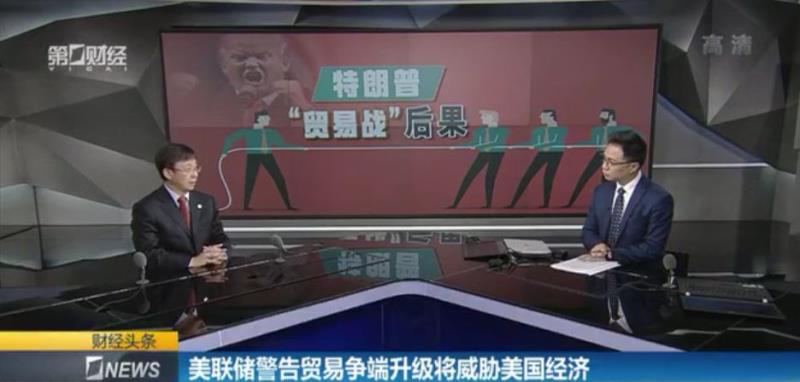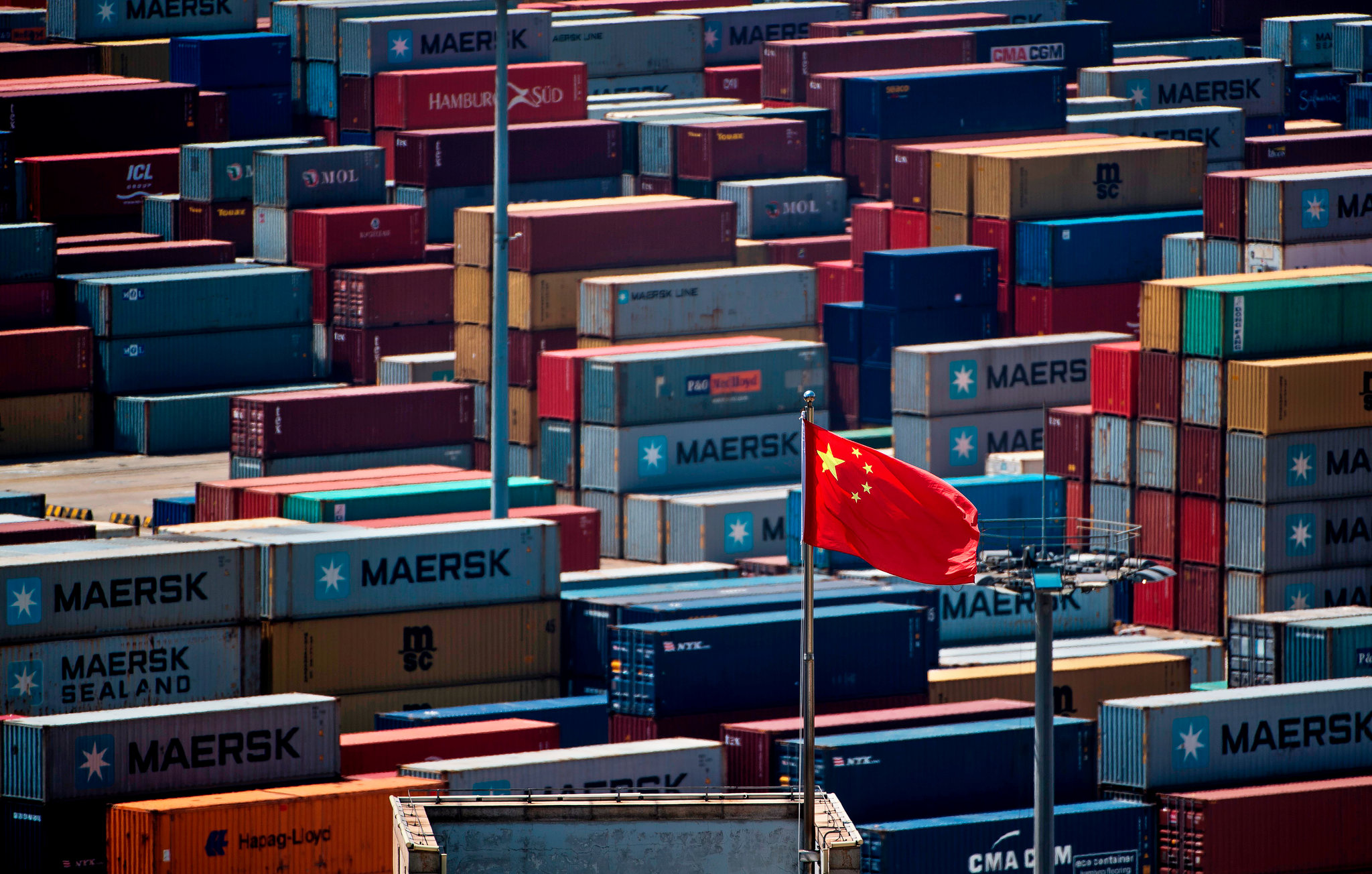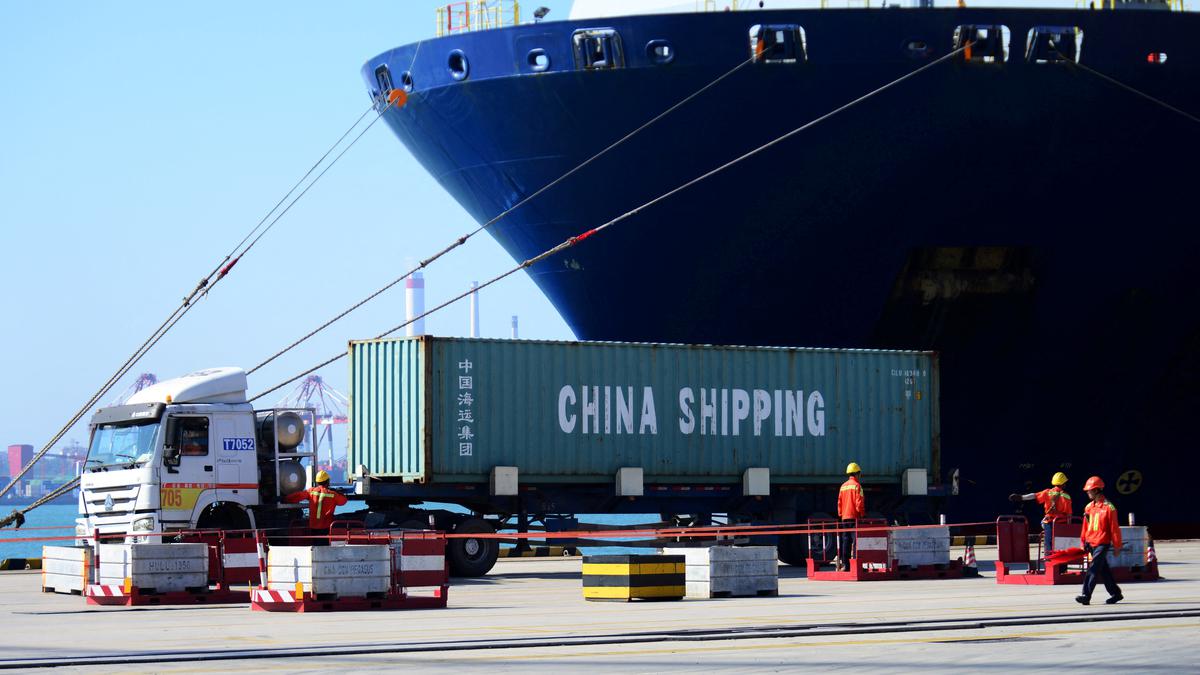Assessing The Risks: Trump's Trade Policies And US Financial Primacy

Table of Contents
The Impact of Tariffs on Global Trade and Investment
Tariffs, taxes imposed on imported goods, are a cornerstone of protectionist trade policy. While proponents argue tariffs protect domestic industries, their impact on global trade and investment is multifaceted and often detrimental. The Trump administration implemented numerous tariffs, notably on steel, aluminum, and goods from China. These actions triggered retaliatory tariffs from other countries, escalating trade tensions and disrupting established global supply chains.
- Increased costs for businesses and consumers: Tariffs raise the price of imported goods, impacting businesses reliant on foreign inputs and increasing costs for consumers.
- Retaliatory tariffs from other countries: The imposition of tariffs often leads to reciprocal actions from trading partners, creating a cycle of escalating trade wars.
- Disruption of global supply chains: Tariffs force businesses to rethink their sourcing strategies, leading to delays, increased costs, and potential disruptions in production.
- Negative impact on foreign direct investment (FDI): Uncertainty and instability caused by protectionist policies deter foreign investment, hindering economic growth.
For example, the tariffs imposed on Chinese goods led to increased costs for American businesses and consumers, while China retaliated with tariffs on US agricultural products, harming American farmers. This exemplifies the complex and often negative consequences of protectionist trade policies on global commerce.
Trade Wars and Their Effect on US Economic Growth
Trade wars, characterized by reciprocal tariff increases and trade restrictions between countries, have significant economic consequences. The trade disputes initiated during the Trump administration, particularly with China, led to considerable uncertainty and volatility in financial markets.
- Reduced economic growth due to decreased trade volume: Trade wars shrink the overall volume of trade, reducing economic activity and GDP growth.
- Increased prices for consumers due to tariffs and trade restrictions: Higher prices for imported goods directly impact consumer purchasing power and reduce overall economic demand.
- Potential job losses in affected sectors: While some domestic industries may benefit temporarily, others reliant on international trade can face significant job losses.
- Uncertainty and volatility in financial markets: Trade disputes create uncertainty, impacting investor confidence and leading to volatility in stock markets and currency exchange rates.
Economic models consistently demonstrate that trade wars reduce overall global welfare, and the experience of the Trump-era trade disputes largely supports this conclusion. The resulting economic slowdown and increased uncertainty negatively affected US economic growth.
Challenges to the Dollar's Global Reserve Currency Status
The US dollar's status as the world's primary reserve currency is crucial for US financial primacy. This status allows the US to borrow at lower interest rates, maintain a large trade deficit, and exert significant influence in global financial markets. However, the uncertainty and instability created by protectionist trade policies pose a significant threat.
- Loss of confidence in the dollar as a stable and reliable currency: Protectionist policies and unpredictable trade actions can erode confidence in the dollar's stability and reliability.
- Shift in global trade away from the dollar: Countries may seek alternative currencies for international transactions to reduce their reliance on the dollar.
- Increased use of alternative payment systems: The rise of alternative payment systems, such as those based on blockchain technology, could further challenge the dollar's dominance.
- Potential rise of alternative reserve currencies (e.g., Euro, Renminbi): Other major currencies like the Euro and the Renminbi could gain prominence as reserve currencies if confidence in the dollar erodes.
A decline in the dollar's dominance would have profound implications for the US economy, impacting its ability to finance its debt and influencing its standing in the global financial system.
The Role of International Institutions and Agreements
Multilateral institutions like the World Trade Organization (WTO) and international trade agreements play a vital role in establishing and upholding a rules-based global trading system. The Trump administration's approach, characterized by unilateral action and a withdrawal from key agreements, significantly impacted the US's role in these institutions.
- Withdrawal from the Trans-Pacific Partnership (TPP): The withdrawal from the TPP signaled a retreat from multilateral trade agreements and weakened US influence in the Asia-Pacific region.
- Challenges to the World Trade Organization (WTO): The Trump administration's actions challenged the WTO's dispute settlement system, undermining its effectiveness in resolving trade conflicts.
- Bilateral trade agreements as alternatives to multilateralism: The pursuit of bilateral agreements, while sometimes offering short-term benefits, often lacks the broader benefits and stability of multilateral frameworks.
These actions have weakened the global trading system and diminished the US's influence in shaping its future. The long-term implications for global trade governance and US leadership remain a matter of ongoing debate and concern.
Conclusion: Assessing the Risks and the Path Forward
Trump's trade policies presented significant risks to US financial primacy. Tariffs disrupted global trade, fueled trade wars that hindered economic growth, and ultimately challenged the dollar's dominance as the world's reserve currency. Furthermore, the US's actions regarding international institutions weakened global cooperation and its own leadership position.
Maintaining US financial leadership in the global economy is crucial for its economic prosperity and geopolitical influence. Mitigating these risks requires a commitment to promoting free and fair trade, strengthening international cooperation, and fostering a stable and predictable economic environment. This includes engaging actively in multilateral institutions, upholding international rules and agreements, and promoting policies that support long-term economic growth and stability. We must focus on understanding the risks inherent in protectionist trade policies and their impact on US financial leadership. By analyzing Trump's trade legacy, we can work towards crafting a more sustainable and beneficial trade policy for the future. Let's engage in informed discussions about the future of US trade policy and its implications for US financial leadership.

Featured Posts
-
 Los Angeles Wildfires The Rise Of Disaster Betting
Apr 22, 2025
Los Angeles Wildfires The Rise Of Disaster Betting
Apr 22, 2025 -
 Navigating The Chinese Market The Struggles Of Bmw Porsche And Other Automakers
Apr 22, 2025
Navigating The Chinese Market The Struggles Of Bmw Porsche And Other Automakers
Apr 22, 2025 -
 Chinas Economy And The Rising Risk Of Tariff Escalation
Apr 22, 2025
Chinas Economy And The Rising Risk Of Tariff Escalation
Apr 22, 2025 -
 The Legacy Of Pope Francis Compassion Reform And Global Impact
Apr 22, 2025
The Legacy Of Pope Francis Compassion Reform And Global Impact
Apr 22, 2025 -
 How Tariffs Threaten Chinas Export Led Growth Model
Apr 22, 2025
How Tariffs Threaten Chinas Export Led Growth Model
Apr 22, 2025
